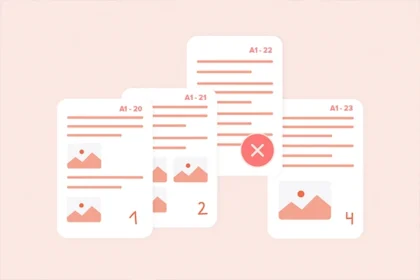When we talk about the future of artificial intelligence (AI), a plethora of developments come to mind. The world to date has witnessed the revolutionary and evolving potential of AI, and we expect to watch more in the coming decades. Future AI holds multiple surprises, whose glimpses we have already seen with agentic and generative AI. This subversive technology has changed the landscape of technology in the last few decades. Artificial intelligence has been integrated into almost all business scales and operations, making processes and systems smooth, advanced, and streamlined. Now, as AI continues to evolve, we look ahead to a future full of more potential, radical changes, and so forth.
Artificial Intelligence: At Present
At present, artificial intelligence is marked by a substantial increase in adoption across large organizations. A recent Forbes report has predicted that the value of the global industry for AI tools and services may rise to $1 trillion, which is a 31% increase from the previous year. It further reveals that around 78% of organizations today use AI, 90% of hospitals utilize AI for diagnosis and monitoring, and 92% of students use Generative AI for content, video, and image generation just through prompting.
AI in 2025
Evolution in Gen AI Capabilities
From 2022 to 2025, AI has evolved in many aspects. Initially, it lacked multimodality, but now AI is multimodal. Fewer AI-powered tools were utilized during 2022-23, but in 2025 experimental computer usage increased. From contextual understanding to comprehensive training, this technology has come a long way.
Improvements in Intelligence and Reasoning
Since its introduction, AI has become more intelligent, and LLMs’ performance on standardized tests is an example of this intelligence. Although it struggled with broad reasoning at the outset, today’s AI model can answer 90% of questions correctly. This advancement in the reasoning capabilities is the next big leap forward for AI.
Introduction to Agentic AI
Agentic AI is one of the most significant examples of AI’s growing ability to take actions autonomously and execute complex tasks across workflows. For instance, in 2023 AI bot could support customer care representatives by summarizing large volumes of data, including text, messages, and technical specifications, to help them suggest responses to customer queries.
Increased Transparency
AI is increasing in transparency, but it still lacks a robust security model to reduce the potential for bias, an imperative for large-scale enterprise deployment. Detect AI can track biases and other harms that occur from data inputs to calibrate them before deployment.
Increased AI Adoption by Employees and Organizations
As identified earlier, organizations in 2025 have embraced AI, as employees showed a willingness to use this technology. The McKinsey report has also shown that around 13 employees are already using Gen AI for daily tasks, and around 50 C-suite employees have been using it in the last 5 years. Leaders are now investing more in their employees to help them train with the accurate use of AI to drive transformative change in their work.
Speed and Safety
AI has significantly accelerated operational speed and data safety with its data analytics, automation, and data synthesizing capabilities.
Multimodality
Multimodality is one of the most unique features of today’s AI development. As it moves toward a more diverse data processing capability across text, audio, and video. We have been witnessing improvements in each modality. For example, as per a McKinsey report, Google’s Gemini Live has improved audio latency and quality and is now capable of delivering human-like conversation. Additionally, with Gen-AI, artificial intelligence drawing is just at a distance of giving a prompt.
Impact of AI on the Future
- Improved Business Automation: The Majority of businesses are adopting, and in the future, this adoption will definitely increase to accelerate business automation. Its ability to analyze massive data and convert it into comprehensible formats has the ability to speed up the decision-making process.
- Data Privacy Issues: Data is required to power generative AI tools, and this process has led to data privacy issues as companies are dealing with consumer data. AI Bill of Rights administered by Biden-Harris has listed privacy as one of its underlying principles.
- Job Disruption: AI has disrupted the job market by inflicting fear of job losses among employees and area experts. For example, a manual job role like a secretary is at risk of being automated. Workers working in creative positions are more likely to have their work improved by AI instead of being replaced.
- Changes in Governance and Regulation: As AI continues to evolve, changes in its governance are likely to take place to strengthen and secure data usage. Ethical issues connected to generative AI have increased the demand for more stringent laws and regulations to ensure data privacy.
The CEO Views stand tall as a pillar of success in delivering upgraded news stories, articles, and blogs concerning industries like technology, finance, healthcare, and more. It also features companies and leaders to give them a platform to connect with each other, driving economic growth.










